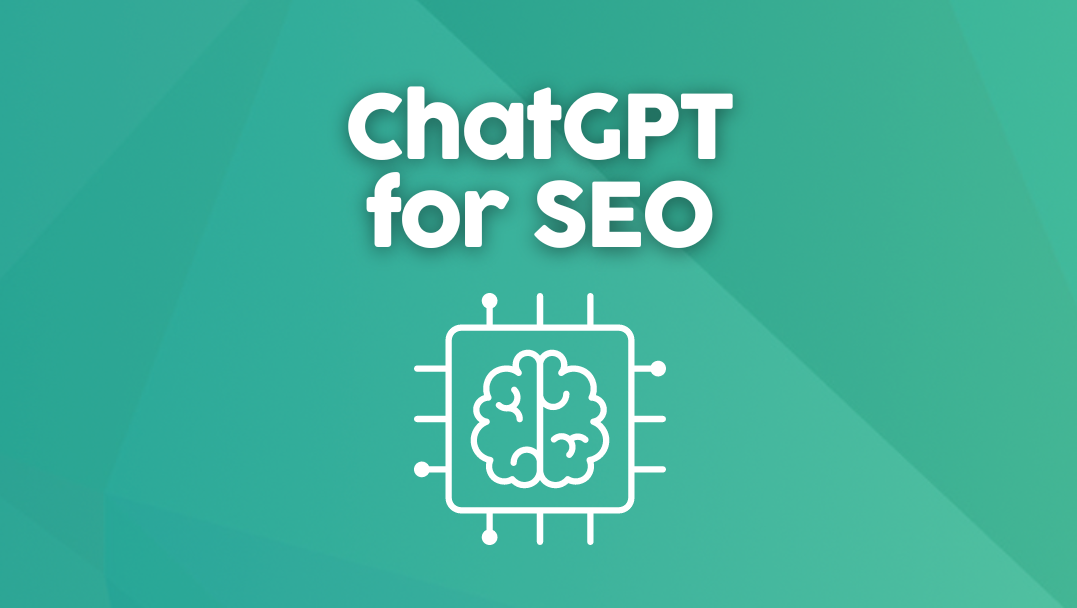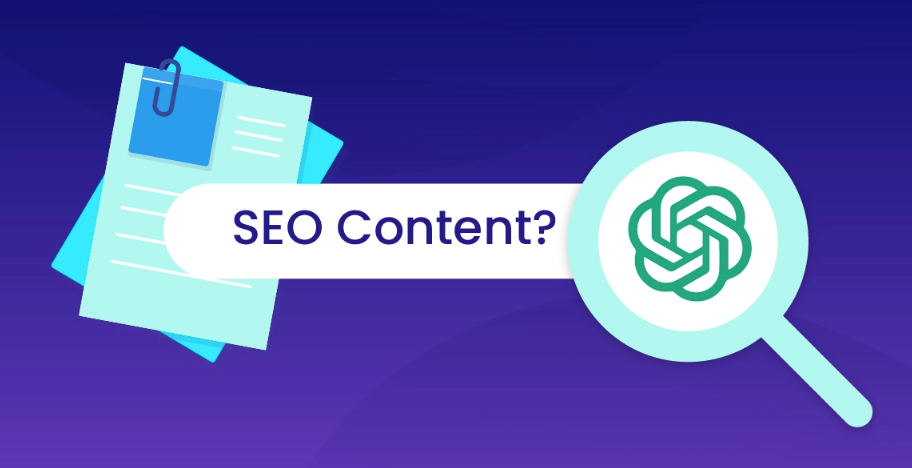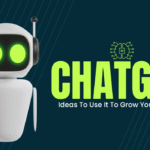Introduction
In today’s hyper-competitive digital landscape, Search Engine Optimization (SEO) remains a cornerstone of online visibility and business growth. But with increasing content demands and evolving algorithms, marketers are constantly searching for smarter, faster ways to optimize their strategies. This has led to a surge in high-CPC search queries like “ChatGPT for SEO,” “AI SEO tools,” and “how to use ChatGPT for content optimization.”
Enter ChatGPT, a powerful AI assistant that’s reshaping the way marketers approach keyword research, content creation, link building, and even technical SEO tasks. Whether you’re a solo blogger, a marketing agency, or an e-commerce brand, ChatGPT offers scalable, prompt-driven solutions that can significantly reduce time and improve content quality.
This article explores how digital marketers can use ChatGPT to drive SEO success, with practical examples, prompt templates, and strategic insights to help you stay ahead of the curve in the AI-powered era of marketing.
Why Digital Marketers Are Turning to ChatGPT
In an increasingly competitive digital landscape, marketers are under pressure to create more content, optimize it for search, and do it faster than ever before. This growing demand has prompted many to ask: “How to use ChatGPT for SEO?” and “Can ChatGPT help with content marketing?” The answer is a resounding yes—especially for those looking to scale their efforts efficiently and cost-effectively.
ChatGPT offers a wide range of capabilities that make it a game-changer for digital marketers. From generating keyword-rich blog content to drafting compelling Meta descriptions, ChatGPT reduces the time and effort needed to produce SEO-optimized content. It’s particularly valuable for agencies managing multiple clients, solopreneurs who lack a full content team, and businesses looking to maintain a consistent publishing schedule.
One of the most searched phrases with a high cost-per-click (CPC) is “ChatGPT for SEO.” This reflects the rising interest in AI tools that support everything from content ideation and keyword strategy to technical SEO tasks. Marketers are also exploring terms like “how to use ChatGPT for keyword research” and “ChatGPT blog content generator,” indicating its growing role in organic traffic strategies.
Moreover, ChatGPT Plus, powered by GPT-4, offers enhanced accuracy and contextual understanding—making it more effective for writing long-form content, handling niche topics, and incorporating semantic SEO principles.
With its ability to support on-page SEO, content strategy, backlink outreach, and even technical SEO documentation, ChatGPT is no longer just a writing assistant—it’s becoming a core part of the modern digital marketer’s toolkit. By learning how to structure the right prompts and align AI outputs with SEO goals, marketers can harness ChatGPT to drive traffic, conversions, and long-term visibility.
SEO Fundamentals and ChatGPT’s Role
To effectively use ChatGPT for SEO optimization, it’s essential to understand how SEO works and where AI can enhance the process. Search Engine Optimization (SEO) is the practice of increasing the quantity and quality of traffic to your website through organic search engine results. It is typically divided into three main pillars: on-page SEO, off-page SEO, and technical SEO.

On-page SEO involves optimizing elements on your website—like blog content, title tags, meta descriptions, headers, and image alt text. Here, ChatGPT shines by generating keyword-rich, well-structured content based on SEO best practices. Prompts such as “Write a meta description for an article about AI in digital marketing” or “Generate H1 and H2 headings for a blog on skincare trends” are common among marketers using ChatGPT for this task.
Off-page SEO focuses on building authority through backlinks, mentions, and social signals. ChatGPT can assist in creating outreach emails, guest post ideas, and linkable content assets. Keywords like “ChatGPT for link building” and “ChatGPT for off-page SEO” are increasingly being searched with high CPC, showing rising demand.
Technical SEO ensures that your website is crawlable and indexable. While ChatGPT isn’t a crawler, it can help draft XML sitemaps, robots.txt files, and schema markups. For example, asking “Generate JSON-LD schema for an FAQ page” allows marketers to implement structured data easily.
With high-value keyword searches such as “ChatGPT SEO plugin”, “ChatGPT for content strategy”, and “how to write SEO content using ChatGPT”, it’s evident that AI has become integral to SEO operations. ChatGPT doesn’t replace SEO tools but amplifies their output by offering speed, structure, and strategic content generation—making it a must-have companion for digital marketers.
Using ChatGPT for Keyword Research
Keyword research is the foundation of every successful SEO strategy—and now, ChatGPT is becoming a go-to tool for this critical task. While traditional platforms like Ahrefs, SEMrush, and Google Keyword Planner provide raw data, ChatGPT complements them by offering contextual keyword expansion, content clustering, and semantic suggestions based on your target audience and niche.
Many marketers are actively searching phrases like “how to use ChatGPT for keyword research” and “ChatGPT keyword strategy prompts”—highlighting its rising popularity for ideation. With well-crafted prompts, you can ask ChatGPT to generate long-tail variations, uncover related search terms, and build keyword clusters aligned with search intent. For instance, a prompt like “List high-CPC long-tail keywords related to online fitness coaching” delivers instantly usable results for SEO planning.
You can also use ChatGPT to:
- Map keywords to content formats (e.g., blog posts, landing pages, FAQs).
- Group related keywords into topical clusters for pillar pages.
- Simulate user intent by creating search queries from different audience personas.
Additionally, digital marketers are exploring combinations like “ChatGPT and Google Keyword Planner” to cross-reference AI-suggested terms with real search volume and CPC metrics. This blended approach enhances both the creativity and accuracy of your keyword strategy.
High-value keywords like “ChatGPT for high-CPC keywords” or “AI keyword generator” reflect the growing interest in automating early-stage SEO research without compromising on relevance. While ChatGPT won’t replace data-rich keyword tools, it significantly boosts speed, brainstorming quality, and ideation depth—especially for content creators, niche marketers, and startups with limited SEO resources.
With the right prompts and strategic filtering, ChatGPT can be your first step toward identifying profitable, rank-worthy keywords for any niche.
Creating SEO-Optimized Content with ChatGPT
Once you’ve identified your target keywords, the next step is crafting compelling, SEO-optimized content—and ChatGPT excels in this area. Whether you’re writing blog posts, product descriptions, landing pages, or FAQs, ChatGPT can help structure, write, and refine content that aligns with your keyword strategy and user intent.

Many users are searching for “ChatGPT blog generator”, “how to write SEO content using ChatGPT”, and “ChatGPT for content writing”—high-CPC keywords that reflect increasing trust in AI-powered content creation. With simple prompts, marketers can instruct ChatGPT to include specific keywords, format content for readability, and align it with SEO best practices like H1-H3 structuring, meta tags, and keyword density.
For example, prompts like:
- “Write a 1200-word blog post on ‘best skincare routine for dry skin’ using long-tail SEO keywords.”
- “Generate a meta title and meta description for an article on AI tools for small businesses.”
- “Create an SEO-optimized product description for a wireless headset.”
These generate content that is not only informative but also structured to rank in search engines. ChatGPT can also help with LSI (Latent Semantic Indexing) keywords, ensuring your content includes related terms that support contextual relevance.
Additionally, ChatGPT supports:
- Alt text generation for images
- Internal linking suggestions
- Content repurposing into newsletters or social media snippets
While ChatGPT boosts productivity, it’s crucial to review and edit outputs for tone, originality, and brand alignment. Always run AI-written content through plagiarism checkers and ensure it aligns with your brand voice.
By using ChatGPT for content creation, digital marketers can accelerate content production, maintain consistency, and enhance SEO visibility—all while saving valuable time and resources.
Technical SEO Tasks ChatGPT Can Support
While technical SEO often requires the expertise of developers and specialized tools, ChatGPT can assist in streamlining many foundational tasks that impact site performance and visibility. Marketers searching for terms like “ChatGPT for technical SEO” and “generate schema with ChatGPT” are discovering how AI can contribute to more efficient, scalable SEO workflows.
One of the most valuable use cases is schema markup generation. With a simple prompt like “Generate JSON-LD schema for a product page”, ChatGPT can produce structured data that enhances your site’s appearance in search results. Similarly, you can prompt it to create FAQPage, Article, Review, or Event schema—all of which improve click-through rates and enable rich snippets.
Other technical tasks ChatGPT can support include:
- Drafting robots.txt files to guide crawler behavior.
- Creating XML sitemaps for better indexing (note: while it can structure the format, a tool is still needed to host and update it).
- Explaining crawl budget optimization and suggesting ways to improve it for large websites.
- Recommending internal linking structures based on content hierarchy.
Marketers often wonder, “Can ChatGPT help with technical SEO audits?” While it doesn’t crawl websites, ChatGPT can guide you in structuring your audit, interpreting technical terms, and even writing developer notes for site fixes.
Pairing ChatGPT with browser extensions or tools like Screaming Frog, Ahrefs, or Google Search Console can offer the perfect blend of AI-generated insights and data-driven accuracy. For instance, after identifying a slow-loading page, you can prompt ChatGPT to suggest code-level optimizations or generate concise error descriptions for developers.
In short, ChatGPT doesn’t replace SEO platforms, but it acts as a technical assistant, reducing friction between SEO strategy and implementation—especially for teams without dedicated tech support.
Link Building and Outreach with ChatGPT
Link building remains one of the most powerful and challenging aspects of SEO. Earning high-quality backlinks can dramatically boost your site’s authority and search engine rankings—but it requires strategy, time, and consistent outreach. This is where ChatGPT becomes a valuable resource for marketers aiming to scale their link-building efforts without sacrificing quality.
High-CPC search terms like “ChatGPT for link building” and “ChatGPT outreach email template” reflect a rising trend: marketers are using AI to streamline backlink acquisition. ChatGPT can generate personalized outreach emails, guest post pitches, and even topic ideas for link-worthy content.
For example, prompts like:
- “Write a guest post pitch for a digital marketing blog on the topic of AI content creation.”
- “Generate a cold outreach email to request a backlink from a SaaS blog.”
- “Suggest five blog titles that are likely to earn backlinks in the SEO niche.”
These generate ready-to-send communication that feels human, professional, and tailored—essential for avoiding spam filters and building genuine partnerships.
ChatGPT also aids in repurposing existing content to make it more shareable. You can ask it to transform a blog post into an infographic outline, a LinkedIn post, or a press release—all of which can attract backlinks naturally.
Additionally, you can use ChatGPT to:
- Analyze a competitor’s backlink strategy (by reviewing public links or guest post patterns).
- Draft collaboration requests for podcast interviews, webinars, or expert roundups.
While AI can’t replace relationship-building, it can significantly reduce the manual workload involved. By combining ChatGPT’s content generation capabilities with your outreach strategy, you can build a more efficient, scalable, and successful link-building campaign—driving long-term authority and SEO success.
Common Mistakes and Limitations
While ChatGPT is a powerful tool for SEO, it’s not without its limitations. Misusing or over-relying on AI can actually harm your SEO efforts if you’re not cautious. Many high-intent searches like “does ChatGPT plagiarize?” or “is ChatGPT accurate for SEO?” reflect concerns about these very issues.
Mistake 1: Over-Reliance on AI Content
One of the biggest pitfalls is treating ChatGPT as a full replacement for human content creators. AI can assist with ideation and drafting, but unedited, AI-generated text may lack originality, brand voice, or nuanced understanding. Google’s Helpful Content Update also discourages low-value, auto-generated content that lacks human insight.
Mistake 2: Ignoring Keyword Intent
Another frequent error is failing to align content with search intent. For example, using a high-CPC keyword like “ChatGPT SEO tool” in a purely informational context, when users may be seeking a product or plugin, can increase bounce rates and reduce conversion potential.
Mistake 3: Poor Prompting
Many users underutilize ChatGPT by giving vague prompts. For example, asking “write SEO content” without a topic, keyword list, or structure will produce generic results. Crafting clear, detailed prompts is key to extracting quality output.
Limitation: Lack of Real-Time Data
Unless used with browser plugins or connected APIs, ChatGPT does not access real-time search data, Google rankings, or algorithm updates. It should complement, not replace, SEO tools like Ahrefs, SEMrush, or Google Search Console.
Best Practice
Always review, edit, and optimize AI-generated content. Cross-verify keywords using trusted SEO tools, and use ChatGPT as a collaborative assistant—not a sole strategist.
Understanding these pitfalls ensures that marketers leverage ChatGPT intelligently, ethically, and effectively in their SEO workflows.
Prompt Templates for SEO Marketers
One of the most valuable ways to harness ChatGPT for SEO is through effective prompt engineering. By using structured, goal-oriented prompts, digital marketers can extract highly relevant content, keyword ideas, and optimization suggestions that align with both search intent and business goals.
Many users are searching for “ChatGPT SEO prompts”, “ChatGPT for blog writing”, and “how to generate Meta descriptions with ChatGPT”—indicating a strong demand for prompt-based workflows. Below are categorized templates that SEO professionals can use immediately to enhance productivity and output quality.
📄 Content Writing Prompts
- “Write a 1000-word blog post on [topic] using the keyword ‘[keyword]’. Include H2 and H3 subheadings.”
- “Create a Meta title and description for a blog about [topic] targeting the keyword ‘[keyword]’.”
- “Generate a compelling product description for [product] focused on [audience].”
🔍 Keyword Strategy Prompts
- “List 10 long-tail keywords related to [primary keyword] with high buyer intent.”
- “Group these keywords into topical clusters: [list of keywords].”
- “Suggest LSI keywords for a blog post about [topic].”
🧩 Technical SEO Prompts
- “Generate JSON-LD schema markup for a product review page.”
- “Draft a robots.txt file that blocks crawling of the /private directory.”
- “Write a clean XML sitemap structure for a blog with 10 articles.”
📬 Link Building and Outreach Prompts
- “Create an outreach email template requesting a backlink for a guest post on [topic].”
- “Write a LinkedIn message pitch for collaborating with an industry blogger.”
These prompt templates not only streamline repetitive SEO tasks but also ensure consistency, scalability, and strategic alignment. Used wisely, they can help marketers convert ChatGPT into a hands-on SEO assistant that delivers measurable results.
Future of AI in SEO Strategy
As the digital landscape evolves, the integration of AI tools like ChatGPT into SEO workflows is not just a trend—it’s the future. Marketers are increasingly searching for terms like “future of AI SEO”, “AI SEO strategy tools”, and “will ChatGPT replace SEO writers?”—reflecting both excitement and curiosity about what’s coming next.
In the near future, AI will play a central role in predictive SEO, helping marketers anticipate shifts in search behavior before they happen. ChatGPT, especially when integrated with real-time data via APIs or browser plugins, could analyze Google Trends, social signals, and competitor activity to forecast keyword opportunities and recommend strategic pivots.
We’ll also see enhanced use of AI in content personalization and voice search optimization. With the rise of conversational interfaces, ChatGPT’s natural language generation capabilities will be instrumental in optimizing content for voice queries and zero-click search results.
As GPT models become more advanced (e.g., GPT-5 and beyond), we can expect AI tools to:
- Auto-generate optimized landing pages.
- Write adaptive Meta descriptions based on real-time CTR data.
- Customize content based on regional search trends and buyer personas.
However, human oversight will remain essential. Google’s algorithms continue to favor helpful, experience-based content, meaning AI-generated output will need editorial input to meet E-E-A-T (Experience, Expertise, Authoritativeness, and Trustworthiness) standards.
In short, AI won’t replace SEO—it will redefine it. Tools like ChatGPT will serve as intelligent co-pilots, empowering marketers to make faster, smarter, and more data-driven decisions. Those who learn to blend AI with strategic thinking and creativity will lead the next era of SEO innovation.
Conclusion
As SEO continues to evolve, ChatGPT has emerged as a transformative tool for digital marketers. From keyword research and content creation to technical SEO support and link-building strategies, it offers scalable solutions that save time while enhancing performance. High-value search trends like “ChatGPT for SEO,” “AI content optimization,” and “ChatGPT blog writing” show that AI-driven strategies are no longer optional—they’re essential.
However, while ChatGPT boosts efficiency, success still relies on human creativity, strategic planning, and ethical execution. SEO is not just about ranking; it’s about delivering real value to users. When marketers combine ChatGPT’s capabilities with quality research and editorial oversight, they can build a content ecosystem that ranks well, engages readers, and drives meaningful results. In a rapidly changing digital environment, those who embrace AI tools like ChatGPT—not as shortcuts, but as strategic partners—will lead the way in shaping the future of SEO.



